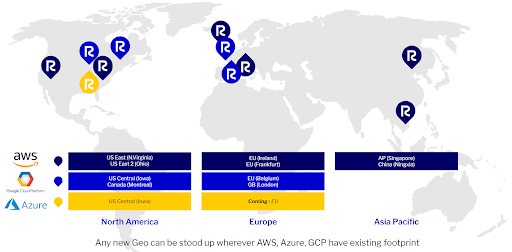Data sovereignty: Navigating a complex, changing landscape

On the surface, the concept of data sovereignty is simple. It refers to the idea that data is subject to the laws and governance structures of the country in which it is located. So if your data is stored in a given country, that country’s laws and regulations apply to that data—security, data protection, data privacy, and more. And data privacy regulations often apply based upon the residency of the data subject (the owner of the data) as well.
We know that data is an incredibly valuable asset that needs to be protected. It can contain sensitive personal data including health or financial information. Or proprietary business information including intellectual property. Or even government or defense secrets. So it’s no wonder that countries have a critical interest in ensuring that the data is protected from unauthorized access, theft, and other potential risks.
But applying data sovereignty regulations isn’t always straight forward. It can create challenges for organizations that operate across borders. So, an organization operating in multiple countries needs to comply with different data sovereignty laws by location—data protection and privacy laws, for example—significantly increasing administrative burden and costs. And with the explosion of data volumes and the growth of storage options and locations, how do you ensure that you are complying with applicable regulations and adequately safeguarding your data?
One key step is to ensure that data is stored in a location that complies with the relevant laws and regulations. This may involve working with cloud providers or other third-party vendors that can provide appropriate data storage solutions. •Another important step is to develop appropriate data management policies and procedures that comply with the relevant data protection laws and regulations.

Data sovereignty landscape is complex and ever-changing
Data sovereignty regulations vary by country, and they can be incredibly detailed and complex—spanning data privacy, data localization, data residency, and more. To simplify our discussion, let’s look at a subset of those laws—data protection and privacy regulations such as the General Data Protection Act (GDPR). According to the United Nations Conference on Trade and Development (UNCTAD), currently 137 out of 194 countries have legislation to secure the protection of data and privacy. Not to mention that five U.S. states currently have similar laws.
So if your business is operating in several countries, the compliance burden can be all but crippling. Just for GDPR and similar regulations, the requirements are many—gathering and maintaining consent, protecting data subject rights, ensuring data minimization and data portability, and more. And that’s without getting into the complexities of having multiple data processors in different locations.
Enabling data sovereignty with a global footprint
We are committed to helping organizations achieve data sovereignty across the globe. Our platform ensures that organizations can store and manage their data in compliance with relevant local laws and regulations. This includes having local data centers to ensure that data is stored in compliance with data localization and residency requirements, each with robust data management policies and procedures to ensure that sensitive data is protected from unauthorized access. Reltio can can protect sensitive data and comply with data sovereignty regulations, no matter where you operate.

Of course, not all data sovereignty regulations are the same or limited to data privacy. Many countries have restrictions on where data can reside and some even restrict the ability to view private data from outside the country. Regardless of the regulatory environment in which your business operates, we are committed to help you achieve and maintain compliance.
.…………………………………
